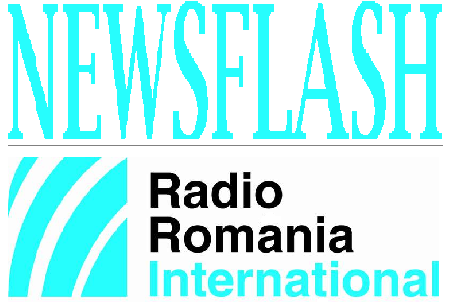February 26, 2014
A roundup of domestic and international news.

România Internațional, 26.02.2014, 13:00
Romania has an unstable government, Romanian President Traian Basescu has today said after having signed the decrees of apponting 9 interim ministers, out of a total of 17. All Liberal ministers and state secretaries have today presented their resignations after on Tuesday their party decided to break up with the Social Democrats and withdraw its members from all ministries and government agencies. After the Liberals left the coalition, the three parties in power, grouped under the newly set up National Union for the Progress of Romania, are trying to form another cabinet. The Social Democratic Party is negotiating with the Democratic Union of Ethnic Hungarians, a party in opposition, to be part of the new cabinet. The Social Democratic Party is also trying to form a parliamentary majority alongside the Democratic Union of Ethnic Hungarians and the representatives of other ethnic minorities, no later than March 4, when the Parliament should validate the new cabinet.
Ukraine’s acting interior minister, Asen Avakov, has announced that the elite Berkut police unit, blamed for the deaths of protesters, has been disbanded. The interim authorities are grappling with the dual threats of separatism and a looming debt default as they try to piece the former Soviet nation back together following the weekend ouster of pro-Russian president Viktor Yanukovych. Pro-Western parties have continued negotiations to form a new government. The fact that the nationalist party Svoboda, alongside representatives of other xenophobic groups, might be part of the new government is worrying both the neighbouring Russia and the pro-Russian regions in eastern and southern Ukraine. According to the Radio Romania correspondent in Kiev, the Russian national flag was hoisted on the Parliament building in the autonomous region of Crimea, and the Russian community’s leaders said they would counteract any attempts, by nationalists in western Ukraine, to intervene in the peninsula. The decisions of the new power in Kiev are also contested by the political leaders of the pro-Russian regions in eastern Ukraine. Interim president Oleksandr Turcinov has ordered harsh measures against any separatist actions.
Head of the Romanian Foreign Intelligence Service, Teodor Melescanu, has said the developments in Ukraine are worring Bucharest because the country hosts an large Romanian community and because the instability there is likely to affect the entire region. The situation of the Romanian community in Ukraine, numbering about 1 million and a half people, is the main priority of the Romanian authoritires, said Foreign Minister Titus Corlatean. He has reiterated his concern about the recent abrogation of the law that granted national minorities the right to use their native language and has called for a new law, likely to guarantee the preservation of the Romanian identity. Moldovan President, Nicolae Timofti, has said in his turn that tenstions in Ukraine, are not affecting, for the time being, the security of the capital city Chisinau, but has pointed out the situation might change.
The Bucharest Tribunal has rejected the proposal of the anti-corruption proscutors to place Dan Radu Rusanu, the head of the Financial Surveillance Authority, under preventive arrest for 29 days. Rusanu was detained for 24 hours, being charged with having set up a criminal group, complicity to abuse of office and aiding a felon. In the same file, the National Anti-Corruption Department (DNA) has officially requested to be given permission to start prosecuting Daniel Chitoiu, the former finance minister. DNA is accusing Daniel Chitoiu of having initiated the process of adopting a new emergency ordinance, with the purpose of supporting the criminal group set up by Rusanu. The board of the Financial Surveillance Authority will be heard by the Senate’s budget-finance commission. In the last two months of 2013 , Dan Radu Rusanu cashed in salaries and bonuses worth 72 thousand euros.
Romanians trust the European institutions more than the domestic ones, according to the latest Eurobarometer made public by the European Commission’s office in Bucharest. The Eurobarometer, conducted last autumn, shows that only 11% of those interviewed trust the Romanian Parliament, while the level of trust in the European Parliament stands at 49%. Also, Romanians are among the most optimistic Europeans.




























